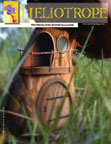
If the Surreal-Decadent section of the Shadow Cabinet has a publisher as its champion, that champion would have to be Dedalus (http://www.dedalusbooks.com). Based in England, Dedalus has produced edgy, inexpensive trade paperbacks of classic reprints, anthologies of translated fantasy from continental Europe, and even originals by the obscure writers of today. Given Dedalus’ current financial problems, and need for reader support, I thought it appropriate to spotlight a few interesting titles that, if not for Dedalus, wouldn’t be in print or, in some cases, never brought into print. Although Dedalus is most famous, perhaps, for its many anthologies of translated Surreal/Decadent or just plain phantasmagorical fiction, I have chosen to concentrate on novels...
The Other Side by Alfred Kubin (original publication, 1908) – Perhaps most akin in tone to parts of Mervyn Peake’s Titus Alone, this novel by a major graphic artist of the Twentieth Century (1877-1959) tells of a mysterious city deep in the heart of Central Asia and the traveler who visits it. The city has literally been brought to its current location by its inhabitants. Over time, strange rituals and aberrations have sprung up. The relatively modern aspects of the novel—American tourists, etc.—are perfectly integrated into a timeless, festering milieu. Unease and unseen horror form the emotional foundations of this original and disturbing novel.
Memoirs of a Gnostic Dwarf and Confessions of a Flesh-Eater by David Madsen (Dedalus originals, 1995 and 1997) – Madsen takes on sexual taboos and deviations in Memoirs and cannibalism in Confessions, with equally fascinating results. The titular dwarf of Memoirs serves in the court of Pope Leo during the Renaissance—in fact, Leo’s backside is described in horrifying detail at the beginning of the novel. What follows is a clear-eyed view of a decadent Papacy, complete with all manner of degradation. As a narrator, Peppe the dwarf is endearing, disgusting, and a sturdy guide through the flagrant excesses of the period. Confessions, by contrast, is a more intimate affair, narrated by Orlando Crispe, who protests in the novel’s opening paragraph, “I did not kill Trogville. No matter what they say, I did not kill him. I introduced a mild narcotic into his glass of whisky; I subsequently stripped him naked, laid him face down on the parquet floor...but I did not kill him.” True, perhaps, although as the reader soon finds out, Crispe, more of a dandy and poseur than Peppe, has plenty else to answer for. Both novels approach the extremes of the grotesque while being fast-moving and, at times, darkly humorous.
Primordial Soup by Christine Leunens (Dedalus original, 1999) – Deceptively breezy and light, but descending into a special kind of darkness, this novel is narrated by Kate Lester, a meat-hater (due to the bizarre views of her mother) who turns to sex in adolescence as a way of achieving a kind of normalcy. Unfortunately, in college, she begins to mix sex with a sudden hunger for meat: “I spent those afternoons marinating Professor Ranji in my mind, in lassi and rose petals.” Satirical, unflinching, and an antidote to the more cloying choices from the Oprah Book Club, Primordial Soup isn’t without its flaws, but in terms of updating Decadent themes in a modern setting, it’s well worth reading.
The Mysteries of Algiers by Robert Irwin (original publication, 1988) – A very dark comedy mixed with philosophical discourse, Irwin’s novel blew me away when I first read it. Set in 1959 in Algiers during a last stand by the French against a liberation army, Mysteries follows Philippe, a desert intelligence officer bent on understanding the mind of the enemy. The plot is labyrinthine, Philippe’s actions grotesque. Unflinching, contemporary, and surreal, it’s a minor masterpiece of mood and condensed writing. Extreme? Certainly. But, then, some of the best writing is extreme. (I also highly recommend Irwin’s The Limits of Vision, an unclassifiable minor masterpiece.)
The Book of Nights by Sylvie Germain (original publication, 1985) – Compared to One Hundred Years of Solitude because of its generations-spanning events, this is a melodramatic, at times hyperbolic novel that showcases the grotesque and bizarre in describing a century of Franco-Prussian conflicts. The Book of Nights follows the Peniel family’s adventures, triumphs, disappointments, and suffering. The elevated language and almost saga-like rhetoric can at times be tiresome, but if you allow yourself to enter this stylized world, there’s an unmistakable power to the narrative. But: in tone and approach, it’s not at all like Marquez. Readers who buy the novel expecting a similar experience will be disappointed. (Germain’s Invitation to a Journey, also published by Dedalus, is a more personal novel, although not as good.)
If any of these novels pique your interest, I would also recommend seeking out The Man in Flames by Serge Filippini, Memoirs of a Byzantine Eunuch, and Alembert’s Principle by Andrew Crumey. Of course, Dedalus has many other titles, in and out of print, and almost all of them are worth your serious consideration.


